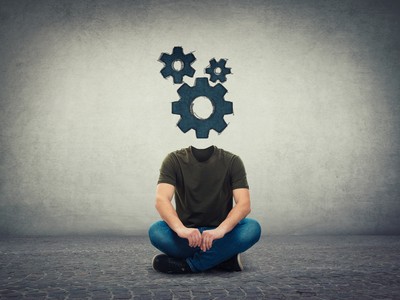
Depressed Define Psychologist Ashmore (07) 5539 9798
Isabella Whittingham Registered Psychologist Ashmore

Introduction: Common Symptoms Of Depression Psychologist Ashmore Near Me
Anxiety and depression are 2 of the most common psychological health disorders that individuals face today. While they might appear like separate conditions, they are typically interconnected and can have a substantial influence on a person's general wellness. In this article, we will check out the connection between stress and anxiety and anxiety, the signs connected with each condition, and what actions individuals can take to handle and get rid of these challenges.
Understanding Stress and anxiety and Depression
What is Anxiety?
Anxiety is a natural action to tension or threat. It is defined by feelings of unease, concern, and fear about daily scenarios. While it is normal to experience anxiety from time to time, chronic anxiety can interfere with daily activities and impact one's quality of life.
What is Depression?
Depression, on the other hand, is a state of mind condition that affects how you feel, think, and handle day-to-day activities. It goes beyond regular feelings of sadness or sorrow and can persist for weeks, months, or perhaps years. Depression can make it challenging to operate in various locations of life, consisting of work, relationships, and self-care.
The Connection In Between Stress And Anxiety and Depression
Anxiety and depression often go together. Lots of individuals who experience stress and anxiety likewise battle with symptoms of depression, and vice versa. The link in between the two conditions can be attributed to several aspects:
Chemical Imbalance: Both anxiety and depression are thought to include an imbalance of neurotransmitters in the brain, such as serotonin and dopamine.
Shared Genetic Aspects: Research suggests that there may be a hereditary predisposition for establishing both anxiety and depression.
Stressful Life Occasions: Traumatic experiences or significant life occasions can activate both anxiety and depression symptoms.
Negative Believing Patterns: People with anxiety tend to have negative ideas and fret excessively about future events. These believed patterns can contribute to the advancement of depression.
Physical Signs: Anxiety and anxiety can manifest with comparable physical symptoms, such as fatigue, sleep disturbances, and modifications in appetite.
Symptoms of Anxiety
Anxiety can manifest in numerous ways and may present different symptoms in each person. Some common signs of stress and anxiety include:
Excessive Concern: Consistent and excessive stressing over everyday circumstances, even when there is no apparent factor for concern.
Restlessness: Feeling on edge or unable to relax, typically accompanied by physical manifestations like shivering or fidgeting.
Difficulty Concentrating: Trouble focusing or staying present due to racing thoughts or fixation with worry.
Irritability: Feeling easily upset or agitated, in some cases without a clear cause.
Sleep Disruptions: Sleeping disorders or uneasy sleep due to racing ideas or worries.
Physical Symptoms: Anxiety can likewise manifest physically, causing symptoms such as quick heart beat, shortness of breath, dizziness, or intestinal issues.
Symptoms of Depression
Depression can vary in intensity and discussion from individual to person. Some common signs of depression include:
Persistent Unhappiness: Feeling sad, empty, or helpless for a prolonged duration, often accompanied by tearfulness.
Loss of Interest: Losing interest in activities once taken pleasure in and experiencing a lack of motivation.
Changes in Cravings: Considerable weight reduction or gain due to modifications in appetite or eating habits.
Fatigue: Feeling worn out and lacking energy, even after getting sufficient sleep.
Difficulty Concentrating: Trouble focusing, making choices, or keeping in mind details.
Suicidal Thoughts: In serious cases, anxiety can cause thoughts of self-harm or suicide. It is essential to seek help if you experience these thoughts.
How to Handle Stress And Anxiety and Depression
Managing stress and anxiety and anxiety requires a comprehensive technique that attends to both What Causes Depression In The Brain Psychologist Ashmore Near Me the physical and psychological aspects of these conditions. Here are some strategies that can help:
Seek Expert Help: Talk to a mental health expert, such as a depression psychologist in Surfers Paradise, who can provide a precise diagnosis and establish a personalized treatment plan.
Medication: Sometimes, medication may be recommended to help manage signs of anxiety and depression. A certified healthcare provider can determine if medication is necessary.
Therapy: Cognitive-behavioral treatment (CBT) and other evidence-based therapies can help individuals identify negative thought patterns, establish coping mechanisms, and improve overall wellness.
Self-Care: Engage in activities that promote self-care, such as routine workout, practicing relaxation methods (e.g., deep breathing or meditation), making sure appropriate sleep, and maintaining a balanced diet.
Social Support: Reach out to good friends, household, or support system who can offer understanding and encouragement throughout difficult times.
Avoid Drug abuse: Drug abuse can aggravate symptoms of anxiety and depression. It is important to prevent self-medicating with drugs or alcohol.
Frequently Asked Questions
- Anxiety is defined by extreme worry and fear about daily situations, while anxiety involves relentless feelings of sadness or hopelessness that impact everyday functioning.
- Yes, anxiety is considered a mental illness when it interferes with life and triggers significant distress.
- Signs of depression in males might consist of irritation, anger or aggressiveness, increased risk-taking habits, drug abuse, or physical signs like headaches or digestion issues.
- While there is no definitive cure for anxiety and anxiety, they can be efficiently handled and treated with the best mix of treatment, medication, and self-care strategies.
- Yes, depression is a mental illness defined by consistent sensations of unhappiness, hopelessness, and a loss of interest in activities when enjoyed.
- Offer assistance and support, listen without judgment, and motivate them to seek expert help. Educate yourself about their conditions to much better understand their experiences.
Conclusion
Anxiety and depression are complicated conditions that frequently exist together and can significantly affect an individual's wellness. Comprehending the connection between these 2 conditions is crucial for reliable treatment and management. By looking for expert aid, practicing self-care, and constructing a strong support group, people can take steps towards overcoming anxiety and depression and restoring control over their lives. Keep in mind that you are not alone in this journey, and there is wish for a brighter future.
Depression Support Psychologist Ashmore
Anxiety And Depression Psychologist Ashmore Near Me
Isabella Whittingham Registered Psychologist Gold Coast
Surfers Paradise Chiropractic Centre-Dr. Bruce Whittingham
12 Thomas Drive, Surfers Paradise QLD 4217
(07) 5539 9798
https://surfersparadisechiropractic.com.au
Help With Depression And Anxiety Psychologist Ashmore Near Me